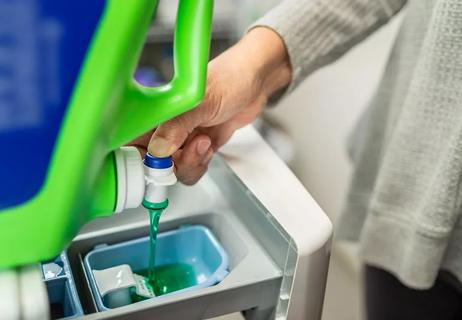Get familiar with these everyday toxins

Have you ever perused the cosmetics aisle and noticed that some products say “paraben-free” and “phthalate-free” on their packaging? You know to mentally award these products some bonus points — but do you know what those claims actually mean?
Advertisement
Cleveland Clinic is a non-profit academic medical center. Advertising on our site helps support our mission. We do not endorse non-Cleveland Clinic products or services. Policy
Every day we come in contact with chemicals (including parabens and phthalates) that experts think, over time, could mess with how our body’s hormones function. These are called hormone- or endocrine-disrupting chemicals, or EDCs.
They’re in food packaging, household and personal care products, and even in the air that we breathe.
“They’re essentially everywhere,” says endocrinologist Shirisha Avadhanula, MD. “We’re consuming them, we’re putting them on our bodies, we’re being exposed to them, and most of the time we don’t even know it.”
If you just felt a twinge of anxiety, take heart — this doesn’t mean you need to throw away everything in your cabinets. But Dr. Avadhanula says that becoming aware of EDCs and paying more attention to the products you use is an excellent step to take.
“We should be really looking at the things that we’re buying and being conscious of the potentially disruptive substances that we’re not only putting in our bodies but on our bodies,” she says.
The intricate endocrine system is made up of many glands throughout your body, including the pituitary gland, ovaries or testes, and thyroid. These glands secrete hormones that enter your circulatory system and bind with receptors in other parts of the body, signaling to your organs and tissues what to do and when to do it.
Hormones help regulate many bodily functions, including:
Advertisement
The term endocrine-disrupting chemical refers to a manmade chemical that can interfere with your body’s hormone functioning. There are hundreds of chemicals thought to have hormone-disrupting effects, but Dr. Avadhanula says the most widespread and well-studied ones fall into four categories:
Some of these chemicals disrupt the endocrine system by mimicking hormones and tricking our bodies. Others block hormones from doing their job.
“EDCs can disrupt a hormone’s pathway at any point — from its secretion from the gland, or its transport through the circulatory system, or its binding to a receptor,” Dr. Avadhanula explains. “You can imagine that exposure to these chemicals would cause disarray in your body.”
Because of the various ways they can work, they are thought to contribute to an array of health problems over time.
Studies have linked high levels of BPA, for example, with heart problems and a greater risk of hormone-related cancers, among other things. Exposure to phthalates has been associated with decreased sperm quality. PCBs are thought to be especially dangerous to the health and fetal development.
“There’s also a suggestion that exposure to EDCs can potentially play a role in the development of obesity and type 2 diabetes,” Dr. Avadhanula adds.
But studying the effects of these chemicals in humans is challenging for scientists. Much of experts’ current understanding is based on animal research or studies of trends in large populations.
“It’s very difficult to measure some of these chemicals in humans, and there aren’t biochemical tests for many of them,” Dr. Avadhanula explains. Plus, we’re exposed to many of these chemicals at once, so it’s hard to isolate their effects. It’s also likely that those effects develop over long periods of time.
Advertisement
We need more studies to better understand the risk to humans, she says.
While scientists work to better understand how EDCs work, Dr. Avadhanula says the best thing concerned consumers can do is make more informed choices.
Here are some tips for minimizing your exposure:
“We can’t underestimate the power of the single consumer,” Dr. Avadhanula says. “I’m happy that, as a society, we’re becoming a lot more cognizant of what we’re consuming, what we’re exposing our bodies to and the effects of our environment on our bodies.”
Advertisement
Learn more about our editorial process.
Advertisement

You can release serotonin, oxytocin, dopamine and endorphins by cooking a meal, walking outside, petting your dog and more

These chemicals, found in products like shampoo, shaving cream and processed foods, may affect your health

Check the plastic and personal care products in your home for these hormone-disrupting chemicals

Estrogen and progesterone changes throughout the month — and throughout your life — can make you more prone to dental health concerns

Certain activities, foods and supplements can help calm your body

Seven symptoms you should ask your doctor about

Researchers have identified nearly 800 chemicals of concern

These illegal supplements have negative impacts for vital organs and may cause psychosis, heart attacks and more

Wearing a scarf, adjusting your outdoor activities and following your asthma treatment plan can help limit breathing problems

Your diet in the weeks, days and hours ahead of your race can power you to the finish line

When someone guilt trips you, they’re using emotionally manipulative behavior to try to get you to act a certain way